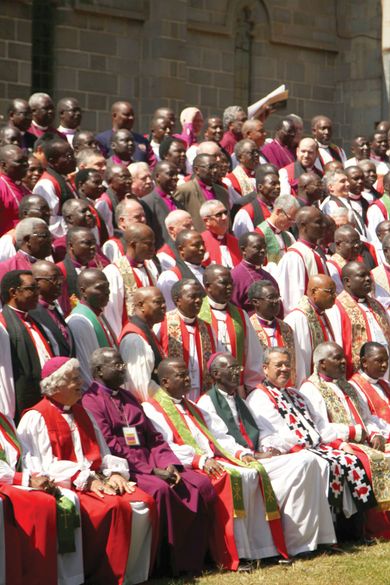What Does Anglicanism Look Like?
Christians have two thousand years of tradition, rooted in Scripture, that shapes how we view God and the salvation of the world through Christ. Our forms of worship are not dictated by personal styles or tastes so much as by what we believe, and by “we” we mean the whole body of Christ on earth and in heaven. The witness of the Church in all times and places comes to us and through us as a united offering of worship to the Divine Majesty.
Our worship is not for our blessing, but for his. You’ll see the ministers and those taking part in the worship leadership wearing robes, reflecting the culture of the Kingdom more than the culture of modern America. You’ll see colors and symbols and movements that are time-honored and meaningful to us in what they remind us about God and his work in the world. Along with modern songs of worship you’ll sing songs from decades and even centuries ago that help to join us to the ancient song of the redeemed. You’ll join us in prayers that are much older than we are, an inheritance of scriptural and historic worship that we’ll offer up, maybe not from our own heads, but definitely from our whole hearts. And all baptized believers will be invited to share with us at the Table the Body and Blood of Christ at the Eucharist.
It may seem a bit formal at first, but soon you’ll begin to see the flexibility too. Words and structures within the service that seem strange at first, become well-worn and beautiful over time. You see, the service disciples us. It sets the patterns for our understanding of God and our reception of his grace. We find as well that it instructs us in the Scriptures and practices of the faith. Some of us have come to Anglicanism from forms of Christianity in which everything is always changing and spontaneity is highly valued. The timelessness of our catholic worship, and its rootedness to the Scriptures, has now become an aspect of our Christian walk that we cherish and love to share.
One thing we want all visitors to know: we are not the worship police. If it’s all brand new to you, if you sit when we stand and stand when we kneel, if you don’t know the prayers, if you lose your place in the book, we won’t laugh at you or condemn you! Most of us remember when it was brand new to us too. We know that worship, like everything else worth doing well and with all of our hearts, takes some practice. Our priest sometimes says or does the “wrong” thing too. Christians are a family, after all, and ought to be able to laugh together as well as be serious together.
